Workforce diversity enhances scientific inquiry and improves healthcare access and quality for underrepresented populations. However, while many medical subspecialties have seen an increase in fellows from underrepresented groups in medicine (URiM), the demographic makeup of the adult and pediatric rheumatology, as well as the advanced practice provider (APP) and allied health professional (AHP) workforces, has remained stagnant and does not reflect the populations most impacted by rheumatic conditions.
The Academy for Workforce Advancement to Enrich Rheumatology Diversity (AWARD) is dedicated to promoting racial and ethnic diversity within pediatric and adult rheumatology, APP and AHP workforces through a range of targeted strategies.
AWARD was established in 2024 through a grant to Brigham and Women’s Hospital, Massachusetts General Hospital, Howard University and Boston Children’s Hospital from the Arthritis Foundation. With partners both from these institutions as well as from the Association of Women in Rheumatology, AWARD leaders have developed four pillars- mentorship, pathway programs, social and racial justice curriculum and leadership- each with synergistic goals to improve rheumatology, APP, and AHP workforce diversity. This work was presented at the American College of Rheumatology Conference 2024 (view abstract).
AWARD will convene a Delphi panel to establish a set of goals and metrics to promote accountability and sustainability of pillar efforts.
Following age-related comparison in the medical work force, African American, American Indian and Alaska Native, Hispanic/Latina/Latino/Latinx, Native Hawaiian and other Pacific Islander individuals are underrepresented and are thus considered URiM. The AWARD pillars aim to reach rising students and health professionals who identify as URiM at different stages in their training. We provide resources and mentoring from medical, APP, and AHP school throughout training and fellowship, to showcase the field of rheumatology with an opportunity to enrich the next generation of rheumatologists, APPs, and AHPs.
Mentoring
The Mentoring pillar is focused mentoring and sponsoring URiM individuals in rheumatology by creating infrastructure to identify train, and match mentors/sponsors with mentees in the field. Learn more.
Pathways
The Pathways pillar aims to build a clearinghouse of opportunities for individuals at different educational stages, providing exposure to the rheumatology specialty, interview and CV-building skills, and guides for rheumatology rotations. Learn more.
Curriculum
The Racial and Social Justice, Service and Advocacy Curriculum will frame the field of rheumatology through an equity lens, establishing a library of videos, cases, resources, and teaching points for different levels of learners.
URiM Leadership
The Leadership pillar will bring together the key leaders across rheumatology and rheumatology-specific APPs and URiM medical and APP students, residents and fellows with planned careers in rheumatology through interactive seminars, hybrid meetings, and an in-person summit with pathways to future leadership opportunities. Learn more.
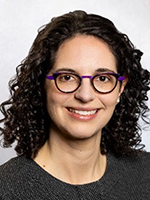
Dr. Candace Feldman is the Director of the BWH Division of Rheumatology, Inflammation and Immunity Diversity, Equity and Inclusion Task Force. She is also co-Director of Health Equity Initiatives for the BWH Department of Medicine. Dr. Feldman is a rheumatologist, social epidemiologist and health equity researcher focused on improving care and reducing disparities among individuals with rheumatologic conditions. Her vision is multipronged and includes multilevel interventions with both community and hospital-based components, as well as workforce-specific efforts to enhance diversity through pathway programs and social and racial justice curriculum development.
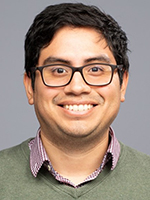
Dr. Renato Ferrandiz-Espadin is a chief resident at North Alabama Medical Center, a community hospital in the Shoals. Originally from Lima, Peru, he is a third-generation physician. Dr. Ferrandiz-Espadin is an aspiring rheumatologist with a strong interest in developing a career that focuses on teaching medical students and residents about the impact of social disparities on healthcare in the U.S., a passion he has actively pursued during his chief year. He is currently working on assessing social disparities in r-axSpA and hopes to dedicate his life to improving access to rheumatologic care for underrepresented populations and advancing research on these topics. He believes that effective communication, collegiality, and staying grounded are key to improving health outcomes.
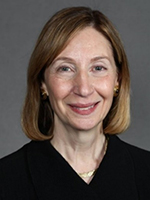
Dr. Gravallese is the Theodore Bevier Bayles Professor of Medicine at Harvard Medical School (HMS) and Chief of the Division of Rheumatology, Inflammation, and Immunity at Brigham and Women’s Hospital (BWH). Dr. Gravallese’s research has focused on the fundamental mechanisms of inflammation and joint destruction in arthritis and has identified key pathways by which inflammation impacts bone in the rheumatic diseases. Dr. Gravallese served as the 83rd President of the ACR during the COVID-19 pandemic and received the Presidential Gold Medal award from ACR (2023), the highest award the college bestows. She was recently elected to the Association of American Physicians, is an ACR Master, and currently serves an Associate Editor at The New England Journal of Medicine.
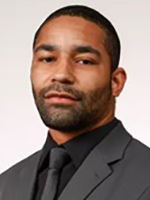
Tyler Green graduated from Dartmouth College in 2024 receiving a BA in Biology with a concentration in African and African American Studies. While attending Dartmouth, Tyler served as a pre-health mentor for students identifying as URiM. Tyler Also served as a coordinator for the Pathways to Medicine program at Dartmouth designed to support URiM identifying students interested in medicine while prioritizing education surrounding the social determinants of health, and issues of equity and disparity.
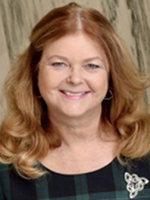
Dr. Maura Daly Iversen is Dean and Professor of the College of Health and Wellness, Johnson and Wales University and Behavioral Epidemiologist and Senior Lecturer, Division of Rheumatology, Immunology and Immunity, Department of Medicine, Harvard Medical School, Brigham and Women's Hospital. She is Professor Emeritus, Northeastern University, and Foreign Professor, Department of Women's and Children's Health, Karolinska University, Stockholm, Sweden.
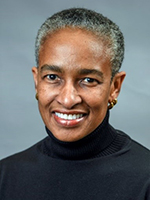
Gail Kerr MD, FRCP(Edin), FACR is Professor of Medicine at Georgetown and Howard Universities and Chief of Rheumatology at the Washington, DC VAMC. She has been involved with education of trainees at all levels and has worked to increase diversity in recruitment and training in the specialty of Rheumatology.
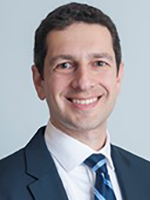
Dr. Eli Miloslavsky is an adult rheumatologist at the Massachusetts General Hospital and Associate Professor of Medicine at Harvard Medical School. Dr. Miloslavsky has extensive experience working with learners at multiple levels and in program and curriculum development including as course and clerkship director at Harvard Medical School, Firm Chief and Co-Chair of Recruitment in the MGH Internal Medicine Residency Program and Associate Program Director for the MGH Rheumatology Fellowship. He is a member of the MGH Diversity and Inclusion Board and is currently the President Elect of the Association of Subspecialty Professors at the Alliance for Academic internal Medicine.
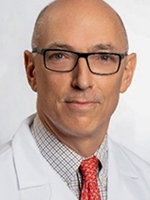
Daniel H. Solomon, MD, MPH, is a Professor of Medicine at Harvard Medical School and a member of the Division of Rheumatology and Division of Pharmacoepidemiology and Pharmacoeconomics at Brigham and Women’s Hospital. He holds the Matthew H. Liang Distinguished Chair in Arthritis and Population Health at the Brigham. Solomon earned his BA and MD degrees at Yale University, MPH at Harvard University, and he completed his residency in internal medicine and fellowship in rheumatology at Brigham and Women’s Hospital.
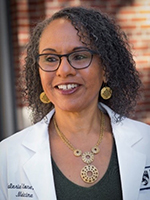
Dr. Stone is Vice Chair for Diversity, Equity and Inclusion, and Director of Health Equity Initiatives of the Department of Medicine at Brigham and Women’s Hospital and Professor of Medicine at Harvard Medical School. Dr. Stone is an academic general internist and a nationally recognized expert on HIV/AIDS and the author of numerous publications on HIV care and policy, including the book HIV in U.S. Communities of Color, which was published in its second edition in 2021. Her research focuses on HIV care inequities and strategies for optimizing the care of the diverse patients living with HIV. Dr. Stone’s scholarship has also examined COVID care inequities, cancer care inequities, diversity in healthcare, healthcare leadership, challenges in primary care, and innovations in residency training.
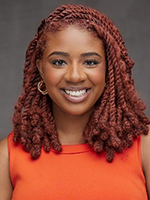
Sciaska Ulysse is a second-year medical student at the University of California, San Francisco School of Medicine, and a 2021 graduate from the University of Pennsylvania. While a student in Philadelphia, Sciaska worked to increase STEM diversity through the Moelis Access Science Pipeline, served as the President of the Minority Association of Pre-Health Students with the Perelman School of Medicine Student National Medical Association chapter, and is a member of the Delta Sigma Theta Sorority, Inc., which is an organization committed to public service focused on the Black community. Within San Francisco, she currently serves as the co-president of the Student National Medical Association chapter at UCSF and a mentor with HealthLink, where she works to inspire, support, and nurture students from communities underrepresented in the health professions.
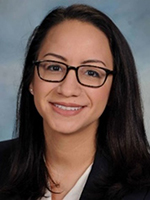
Dr. Valle is a rheumatology fellow and identifies as a group underrepresented in medicine. She is passionate about being part of the DEI Task Force because it is imperative for our institution and the rheumatology field at large to build ties with and mentor URiM trainees to highlight that that they too belong in rheumatology and research. Dr. Valle believes that in rheumatology, we need diverse providers to match our diverse patient population and our DEI task force works towards this goal.
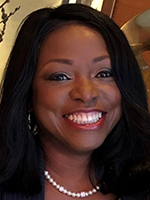
Grace C. Wright, MD, PhD, FACR, is a consultant rheumatologist in New York City who completed her Internal Medicine and Rheumatology training at the NYU Medical Center where she served as Clinical Associate Professor of Medicine. She is the founder and president of the Association of Women in Rheumatology, spearheading initiatives in Health and Gender Equity, Mentoring and Leadership Development for health care providers at all stages of career development. She lectures extensively throughout the world, and enjoys cultural exploration, travel, and time with her family.
If you are interested in becoming involved in AWARD in any capacity, please provide your information to our team.
For over a century, a leader in patient care, medical education and research, with expertise in virtually every specialty of medicine and surgery.
About BWH